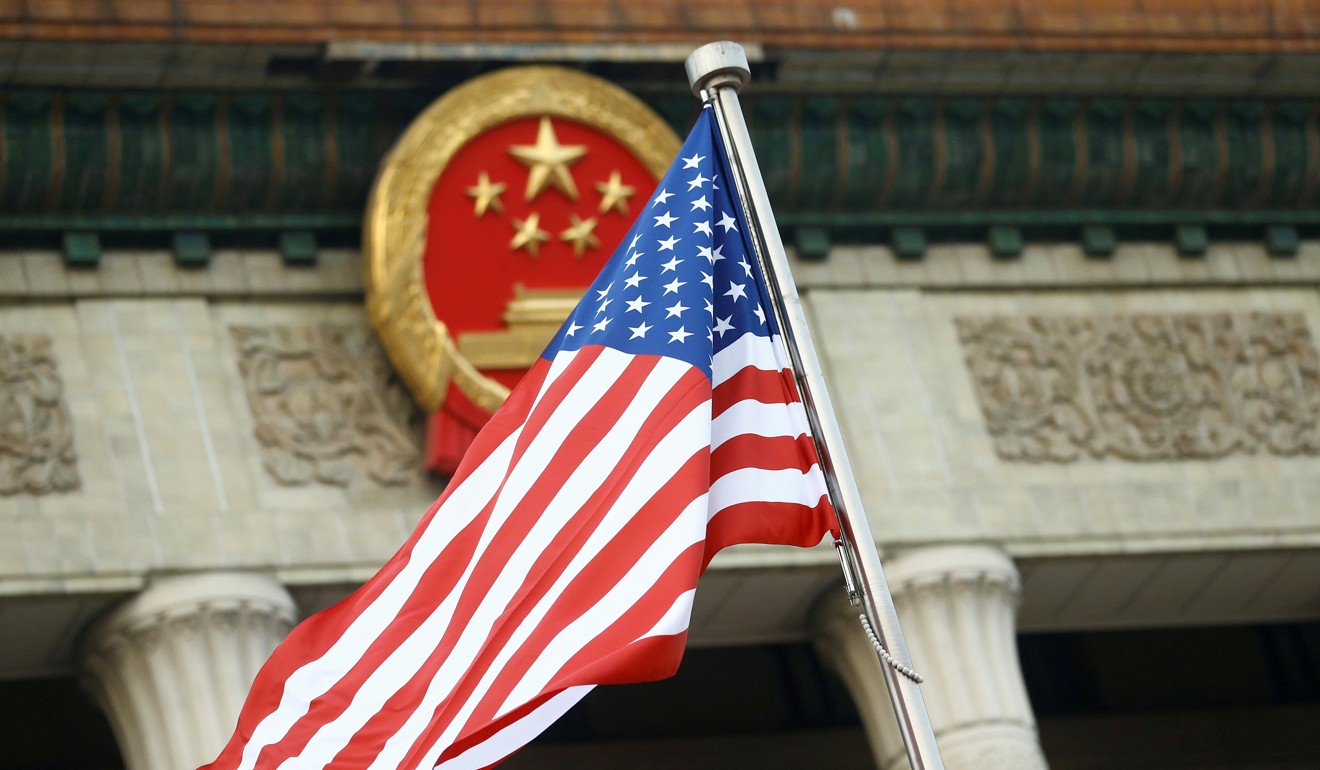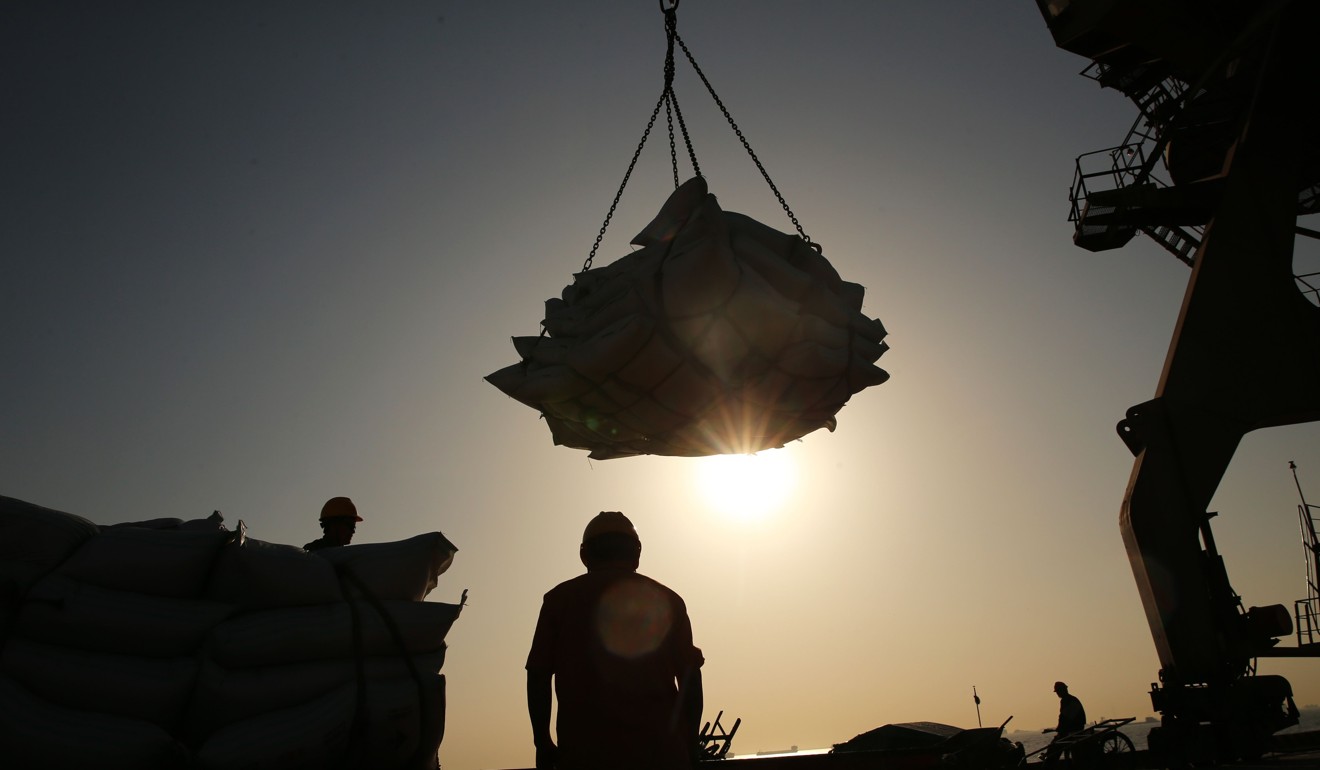
Celebrated Chinese state banker warned Beijing against trade war
- Former state bank president warned against a tit-for-tat trade war with the US
- Li Ruogu also criticised China’s state-owned media for distorting the effects of the trade war
The former head of a Chinese policy bank pleaded for China not to engage in a tit-for-tat trade war with the United States, a newly-published speech from last September shows.
The speech by Li Ruogu, the former president of the Export and Import Bank of China (China Exim), a giant state-owned lender that gives loans to foreign companies to purchase Chinese goods or services, sheds new light on the internal struggle in Beijing over how to manage the trade dispute with Washington.
“When the weak side is fighting a war against the strong side, the weak side must know how to make a retreat. It will not work if the weak side only knows how to fight head-to-head,” said Li in an internal debate on September 27.
“Therefore, I suggest that we must pick our battles. A concession is not a surrender, it is intended to win the advantages [down the road]. I don’t think a tit-for-tat approach is workable in the US-China trade dispute,” Li said.
The speech also offers clues on why the Chinese leadership has shifted to a more conciliatory approach in recent months.

While not made public at the time, Li’s speech was published in the latest edition of the Chinese-language Economic Herald, a monthly publication run by China Citic Group, a state-owned conglomerate.
It was made just three days after the third round of bilateral tariffs were implemented.
This saw the US place a 10 per cent tariff on US$200 billion worth of Chinese goods, bringing the total amount to US$250 billion. China responded by implementing tariffs on US$60 billion worth of US goods, at a varying rate of 5 per cent and 10 per cent.
This was also around the time when the effects of the trade war started to be felt in the Chinese economy, especially in export bases like Guangdong, which has subsequently published data showing that its economy was weakening in the third and fourth quarter of 2018.
Li, who headed China Exim from 2005 to 2015, attacked the view that the trade war would only detract 0.4 per cent to 0.5 per cent from the Chinese economy.
In September, weeks before Li’s speech, Zhou Xiaochuan, former governor of China’s central bank, predicted in an interview with CNBC that the trade war’s impact on China’s gross domestic product would be smaller than 0.5 percentage points.
“I don’t know how they calculated it,” Li said. “The loss of US$500 billion in exports [with the US] will have a tremendous impact on employment, social stability and many families … a full-scale evaluation is vital to decision making.”
Li also took aim at China’s government-controlled media, saying it distorted the general public’s understanding of the trade war.
“Our newspapers and TV stations concentrate on the opposition of a majority of American firms… but they ignored the fact that those firms first complained to the US government of unfair treatment in China,” Li said.
“We did not tell our people that the US made a careful evaluation of the impact of the trade war, rather than making an impulsive decision,” he added. “It will bring problems if we insist on fighting and lose the market accordingly.”
Li is not the only former government figure to hold such views.
Long Yongtu, a former vice-trade minister who headed the talks that led to China’s entry to the World Trade Organisation, openly criticised Beijing’s tactics in November 2018, particularly the tariffs on American agricultural exports.

“Agricultural products are very sensitive...it [tariffs] should be the last resort,” Long told the Caixin summit in Beijing, held on November 18. “China is in dire need of soybean imports, so why did we pick out soybeans from the beginning? Is this deep thinking?”
Long also warned of political considerations in trade talks. “If we have people who always talk about politics engaging in [trade] negotiations, we will never have a deal… we do not think deeply enough,” he said.
It remains unclear whether Beijing’s top policymakers directly noted the advice of Li and Long.
However, China’s conciliatory approach in recent months – agreeing to a 90-day truce and pushing for further negotiations with the US – suggest that their voices may have been heard and heeded.
Beijing is scrambling to reach an end to the trade war before March 1, after which the temporary truce will expire, and tariffs on US$250 billion of Chinese goods will rise to 25 per cent.
The government is also facing huge pressure from the slowing national economy.
On Monday January 21, it was announced that the economy grew at the slowest pace since 1990 last year, 6.6 per cent. Growth in the fourth quarter of last year dipped to a level last seen during the global financial crisis in 2009, 6.4 per cent.
Both sides met for negotiations in Beijing earlier in January, in an effort to work through the long list of structural changes for the Chinese economy insisted upon by the US.
Liu He, the Vice-Premier heading the trade talks, is expected to visit Washington at the end of this month.
Meanwhile, the Financial Times reported today that the US rejected a Chinese offer to send two Chinese vice-ministers for preliminary discussions, before Liu’s arrival.

